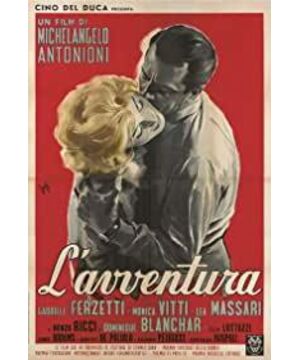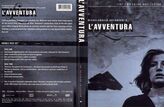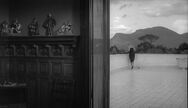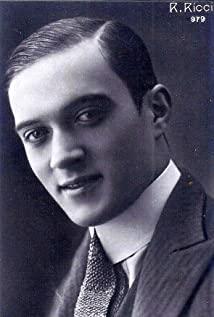Reality
The plot provided by "Adventure" is not supernatural, nor is it an unspeakable inner experience. You can see the difference between Antonioni and the neo-realist creation method and core. You can't imagine the bicycle in "The Bike Thief". The embarrassing picture of missing. This is not a story about searching. In the middle of the film, everyone gave up searching or forgot to search. "Anna's disappearance" became "Anna's disappearance". This double disappearance created a loophole in the film. , The center of the loophole is invisible, implying a black hole that is somewhere else, a kind of nowhere, that can never be explained, and destroys all visibility of the black hole. Antonioni does not worship the equivalent means of visual expression that reproduces the complete reality. Rather, Ann rejects this possibility and clearly doubts a priority, unquestioned, and completely visible presence. The mystery brought by the fantasy narrative of Anna's absence is completely secular and empirical. To prove the profound ambiguity of human relations with reality. This also fits the themes of alienation and anxiety. The sea, islands, streets, churches, and rooftops in "Adventure" are constantly shifting vast time and space, which are homogenized images of the void, conveying the boring and deadly empty experience of the middle class.
Difficulties for both sexes
Antonioni’s famous statement at the Cannes Film Festival is often quoted. He said that one of the things the film tried to show was Eros is sick. In the world of these characters, Anna wants to escape, Sandro is chasing sexual desire, men are greedy, women are boring, everyone is listlessly seeking pleasure, unscrupulously engages in sexual contact and sex games in front of others, Crowe Dia has been shown as a female character with the most integrity and the clearest values from beginning to end. These characters are hidden in their precious self-seeking selves, and they cannot interact and communicate in any meaningful way. This feature is represented symbolically at a moment in the film: when Claudia yelled to a house in a deserted town, all she responded to was a hollow, lifeless echo, while in Noto The roof of the church. Claudia rang the bell accidentally, and the bell from another church echoed her bell, and at this moment she was happy like a child. But the church bell may only be a superficial response. In fact, there is no substantive communication between the couple. This is a very common theme in Antonioni’s films, mocking communication by presenting illusory communication rather than actual communication. Concept.
Antonioni is very concerned about the way men survive in the world. In "Adventure", men watch women greedily from beginning to end. Thousands of excited men followed Gloria. Similarly, Claudia fell into the violent and predatory gaze of men while waiting for Sandro, and Sandro sexually coerced Claudia shortly after Anna's disappearance. Sandro fortunately slept with Gloria at the end of the film. Unlike other men who can only use this obsessed woman as a symbol of sexual fantasies, he is nothing more than a well-groomed middle-class hypocrite. The world is controlled by the obvious physical superiority of men, and the performance of patriarchy is crude, ugly, and threatening to the body.
Money seems to have corroded Antonioni's men extraordinarily. The role of money as an ancient driving force for competition has found another way of expression in this day and age. And as always, money and sex are entangled with each other. In this struggle, women become the trophy for measuring and proclaiming male status in male competition. Sandro and Anna's father are obviously competing for Anna's loyalty to them. At the end of the film, Gloria asked Sandro to leave some "souvenirs" when Sandro was about to leave. Sandro threw down some money for her. Gloria's movement of rubbing the money with her feet was both erotic and enjoyable. , Sex is just a fair deal.
View more about L'Avventura reviews











